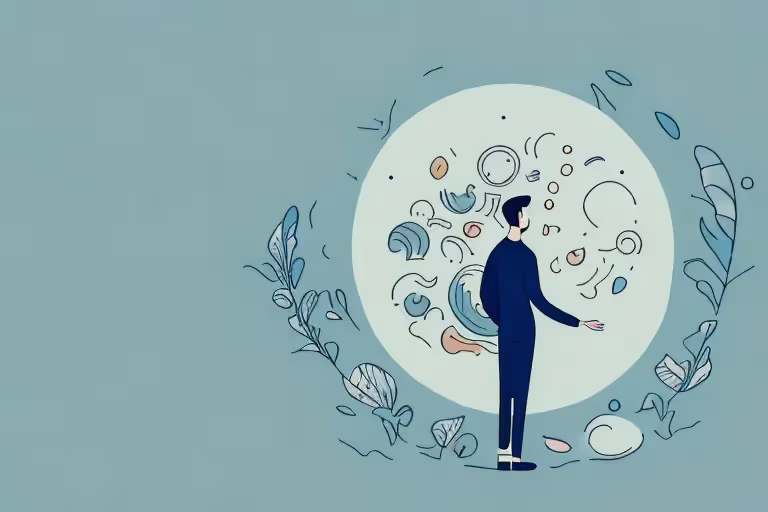The Science of Gratitude
Gratitude is a life-changing mindset that can be particularly helpful if you have you ever had a day when you woke up, sighed, and felt like everything could be better.
While many of us understand the value of a gratitude practice, it can be difficult to identify how and why gratitude leads to many positive changes and how to implement gratitude practices. According to a recent paper on gratitude from Berkley, the benefits of gratitude are mental and physical. A grateful person is less inclined to feel the negative impacts of materialism, lack, or self-centered behavior.
The payoffs for implementing a gratitude practice are huge. In The Science of Gratitude, there are studies that show how gratitude practice is associated with better sleep, reduced signs of inflammation, less stress, less fatigue, and increased contentment. Because grateful people know how to appreciate what they have, they also strengthen relationships with friends, family, and co-workers.
So if we know gratitude can lead to more happiness, better relationships, better sleep, and overall happiness, why are we not all more grateful daily? A grateful mindset may be harder to cultivate when we are in a competitive environment, feel we live in relative lack, or simply do not know how to find things to be thankful for in our lives.
How gratitude can be possible
Practicing Gratitude with Lists
Keeping a daily journal of things to be grateful for can be a simple and powerful way to begin to introduce a more grateful mindset. Keep a journal by your bedside and begin to reflect on the many things you experienced that day. Identify at least five things you have to be grateful for. And if you cannot think of anything, here are 30 gratitude journal prompts:
- List any moments in your day that you recall feeling happy or full of joy, even if was only for a moment.
- List all the foods and drinks you consumed and reflect on how they nourished your body.
- List all the people you interacted with and any smiles or kindnesses exchanged.
- Find 5 visual memories from the day that brought you joy.
- Focus on your breath and how it animates the body. Send gratitude for your breath and all it does for you each day.
- Reflect on good health or what aspects of the body are working well.
- Reflect on all the times you laughed in the last 24 hours.
- Reflect on where you are as you write this and how many things you can be grateful for now (such as a warm place to sleep or a roof over your head).
- Think about the little things that you enjoy, such as a good song or a warm cup of tea.
- Notice what you hear, smell, see, feel, and sense. Reflect on the beauty of the senses.
- Appreciate the small wins by listing any small accomplishments or points of pride.
- Reflect on your health and your body's journey. Write about how thankful you are for access to healthcare or resources such as mindfulness and meditation that can support your body.
- Reflect on all your loved ones and all those you've loved in your life.
- List all the shared memories with loved ones from the day, week or month.
- List all the ways you are grateful for nature and its beauty.
- List all the ways you've had access to knowledge and learning, and write about how these opportunities have impacted your life.
- If you are having trouble thinking of things to be grateful for now, mine your memory for times in your life when you felt truly thankful or grateful for what you had. Write about what this felt like.
- Write about small gifts of life, such as laughter, music, dancing, kind words, your comfy bed, being alive and breathing, a lovely sunrise or sunset, any freedoms you enjoy, and clean water or access to healthy food.
- List those who have been mentors or teachers who have helped you to grow and write about how grateful you are to them.
- Think about the words soft, sweet, savory, and safe. Write all that comes to mind when you think of each word.
- Cultivate thankfulness by writing a letter of gratitude to a loved one.
- List the many things you have experienced, such as travel or interesting foods or sitting on the sand at the beach.
- Cultivate thankfulness by writing a letter of gratitude to yourself for all you have accomplished and overcome.
- Write about a time you worked hard and felt the impacts of your effort.
- Write about something fresh, new, and exciting.
- List all the mistakes you've made that you've overcome.
- Write about what it feels like to smile or feel content.
- Write about a conversation that changed your life or meant a lot to you.
- Write about one of your friends by listing things you've done together that you are thankful to have experienced.
- List all the things you might take for granted - such as good health, fresh food, or clean water - and instead of being hard on yourself for doing so, see them as opportunities to enjoy your life all the more.
Practicing Gratitude in Person
Our relationships are another opportunity to practice gratitude regularly. When we think about the way we interact with friends and family or co-workers, we can often identify reasons to feel thankful. By zeroing in on what we are thankful for and expressing that in conversation, we can not only boost our happiness and also that of the other person.
It is so easy to say thank you, but often we do not express our thankfulness because we think it is implicit or we forget. Making a more to be thankful and express it openly will strengthen relationships quickly. For example, if someone you see daily always makes you smile because they are funny or kind, think about how you can express thankfulness for this. "Thank you for always making me laugh, even on Mondays," you might say. or "I appreciate how you have a way of making me smile." Other ways you can express gratitude in a simple and natural way.
- "I feel blessed to have you in my life."
- "I am thankful for your friendship."
- "I am grateful for all the ways you make me laugh."
- "I appreciate the way you inspire me."
- "I am grateful to know you."
- "You are the best part of my morning."
- "Your friendship is a gift to me."
- "I want you to know that I am thankful for everything you do."
Many people never hear thank you for positive deeds, so you will be surprised how impactful a simple line of dialogue can be. Letting those who are there for us, such as parents and teachers, know that we appreciate them is a habit that brings everyone joy.
Mindset and Perspective
With practice, gratitude becomes a mindset that helps you to appreciate your life in a new way. It leads to a sense of joy because it reminds you of what you have and how you can build from where you are. Resilience and gratitude are linked in that once you learn how to appreciate this moment now, you invite more abundance into your life.
Training our brains to practice gratitude when we are not used to it is not hard, but it does take persistence. Like any habit, the impact occurs with repetition. We don't have to work hard, but we do have to practice consistently.
I recommend a short morning gratitude practice, such as a quick meditation or taking five minutes each morning to list of things you feel good about to kick off your day with thankfulness and joy. Before bed, list and celebrate all the small victories you feel or do one of the prompts above to feel the gift of gratitude as you drift off to sleep.
Those who practice gratitude daily for 8 weeks, according to Stanford Lifestyle Medicine, will reduce stress and improve the quality of their lives dramatically. Imagine better health, more peace of mind, better sleep, and increased happiness every day. This is possible with a mere 10-15 minute gratitude practice. This a small amount of time to practice to achieve such drastic results. To be more thankful is to thank those who support and love you, and to be more grateful is to reflect on all that you enjoy in your life, even if only for fleeting moments.
Happiness comes when we allow ourselves to appreciate what is. To be grateful is simply to be paying attention. Gratitude practices help us to look at life with fresh eyes and remember that simple but life-changing concept. Practice every day, even for a few minutes, and feel how much happiness you can cultivate simply by reframing and remembering how precious this life is.
If you’re looking for more guidance and community support, along with gratitude meditations to support your journey, join me at Aura, the most holistic meditation app on the market, for 30 days free.



.webp)







.avif)

%20(1).avif)


.avif)
.avif)
.webp)


.avif)


















































































































.avif)

















.svg)









